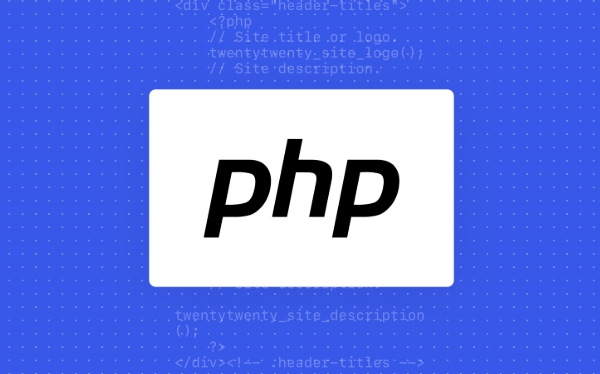Scope Implications of Generators and the `yield` Keyword
Jul 25, 2025 am 04:45 AMFunctions using yield will become generators, and when called, they return the generator object instead of being executed immediately; 2. Local variables of the generator will not be destroyed during yield pause, but will continue with the generator frame until the generator is exhausted or closed; 3. Extended variable life cycle may lead to an increase in memory usage, especially when referring to large objects; 4. When combined with closures, LEGB rules are still followed, but the problem of late binding of loop variables needs to be solved by immediately binding (such as the default parameter value); 5. .close() should be called explicitly to ensure that finally block execution is performed to avoid delays in resource cleaning. The generator affects memory and behavior by extending the survival time of variables, but does not change the lexical scope rules.

When discussing the scope implications of generators and the yield keyword in Python, it's important to understand how yield transforms a function into a generator object and how variable scope behaves within that context. Unlike regular functions, generators maintain state between calls, which affects how names are resolved and when variables are destroyed.

How yield Changes Function Behavior
When yield is used in a function, Python treats that function as a generator function . Calling it doesn't execute the function body immediately; instead, it returns a generator object that can be iterated over.
def my_generator():
x = 10
yield x
x = 5
yield x
gen = my_generator()
print(next(gen)) # 10
print(next(gen)) # 15 Here, x retains its value between yield calls. This persistence has scope and lifetime implications : local variables in a generator function are not destroyed when the function "pauses" at a yield . They persist in the generator's frame until the generator is exhausted or garbage collected.

Variable Scope and Lifetime in Generators
In a regular function, local variables are created when the function is called and destroyed when it returns. But in a generator:
- Local variables persist across
yieldpoints. - The generator's stack frame remains alive as long as the generator object exists.
- Variables are only cleaned up when the generator is closed, exhausted, or deleted.
Consider this example:

def counter():
count = 0
While True:
yield count
count = 1
c = counter()
print(next(c)) # 0
print(next(c)) # 1 The variable count lives on in the generator's scope, even though the function appears to "pause." This is different from closings or regular function scope — it's stateful execution with preserved local scope .
This can lead to higher memory usage if large objects are referenced in the generator, since they won't be freed until the generator is done.
Closure and yield : Watch Out for Late Binding
Generators interact with closings and enclosing scopes just like other functions, but timing matters. Because execution is delayed, late binding issues can occur:
def create_generators():
gens = []
for i in range(3):
gens.append((lambda: (yield i))())
Return gens
for g in create_generators():
print(next(g)) # All print 2! Wait — this doesn't work as expected. Actually, using yield inside a lambda is invalid (SyntaxError). But even in regular generator functions, closure over loop variables can be tricky:
def make_generators():
generators = []
for i in range(3):
def gen():
yield i
generators.append(gen())
Return generators
for g in make_generators():
print(next(g)) # All print 2 The issue here is not with yield per se, but with how closings capture i by reference. The yield keyword doesn't change scoping rules — the generator still follows Python's LEGB (Local, Enclosing, Global, Built-in) rule.
To fix this, bind the variable early:
def gen_with_fixed_i(i):
yield i
generators = [gen_with_fixed_i(i) for i in range(3)] Generator Finalization and __del__
Because generator frames hold references to local variables, circular references can prevent timely cleanup. Python usually handles this via garbage collection, but it's something to be aware of in long-running applications.
You can manually close a generator with .close() to trigger cleanup:
def resource_generator():
print("Opening resource")
try:
yield "data"
Finally:
print("Closing resource")
gen = resource_generator()
print(next(gen))
gen.close() # Ensures finally block runs Without .close() , the finally block may not run until the generator is garbage collected — unpredictable in CPython due to reference counting, but especially risk in PyPy or under memory pressure.
So, while yield doesn't change lexical scoping rules, it alters the lifetime of local variables and introduces statefulness. This means:
- Variables in generator functions live longer than in regular functions.
- Generators can unintentionally keep large objects in memory.
- Closure behavior still follows standard Python rules — be cautious with late binding.
- Always consider cleanup, especially when managing resources.
Basically, generators extend the scope in time , not in namespace — but that's enough to impact memory and behavior significantly.
The above is the detailed content of Scope Implications of Generators and the `yield` Keyword. For more information, please follow other related articles on the PHP Chinese website!

Hot AI Tools

Undress AI Tool
Undress images for free

Undresser.AI Undress
AI-powered app for creating realistic nude photos

AI Clothes Remover
Online AI tool for removing clothes from photos.

Clothoff.io
AI clothes remover

Video Face Swap
Swap faces in any video effortlessly with our completely free AI face swap tool!

Hot Article

Hot Tools

Notepad++7.3.1
Easy-to-use and free code editor

SublimeText3 Chinese version
Chinese version, very easy to use

Zend Studio 13.0.1
Powerful PHP integrated development environment

Dreamweaver CS6
Visual web development tools

SublimeText3 Mac version
God-level code editing software (SublimeText3)
 The Omnipresent Scope: A Practical Guide to PHP's Superglobals
Jul 26, 2025 am 09:47 AM
The Omnipresent Scope: A Practical Guide to PHP's Superglobals
Jul 26, 2025 am 09:47 AM
PHP's hyperglobal variables are always available built-in arrays used to process request data, manage state and obtain server information; 1. When using $_GET, URL parameters need to be type-converted and verified; 2. When receiving form data through $_POST, filtering should be performed with filter_input(); 3. Avoid using $_REQUEST to prevent security vulnerabilities; 4. $_SESSION needs to call session_start() and log in to reset the session ID; 5. When setting $_COOKIE, enable secure, httponly and samesite attributes; 6. The information in $_SERVER cannot be fully trusted and cannot be used for security verification; 7.$_ENV may be
 Navigating the Boundaries: A Deep Dive into Local and Global Scope
Jul 26, 2025 am 09:38 AM
Navigating the Boundaries: A Deep Dive into Local and Global Scope
Jul 26, 2025 am 09:38 AM
Thedifferencebetweenlocalandglobalscopeliesinwherevariablesaredeclaredandaccessible:globalvariablesaredefinedoutsidefunctionsandaccessibleeverywhere,whilelocalvariablesaredeclaredinsidefunctionsandonlyaccessiblewithinthem.1.Globalscopeallowsbroadacce
 Demystifying Global Access: `global` Keyword vs. the `$GLOBALS` Array
Jul 25, 2025 am 05:27 AM
Demystifying Global Access: `global` Keyword vs. the `$GLOBALS` Array
Jul 25, 2025 am 05:27 AM
ThetwomaintoolsforaccessingglobalvariablesinPHParetheglobalkeywordandthe$GLOBALSsuperglobalarray;1)Theglobalkeywordcreatesareferencetoaglobalvariableinsideafunction,allowingdirectaccessandmodification,andifthevariableisundefined,itinitializesitasnull
 The Scope Resolution Order: How PHP Finds Your Variables
Jul 25, 2025 pm 12:14 PM
The Scope Resolution Order: How PHP Finds Your Variables
Jul 25, 2025 pm 12:14 PM
PHPresolvesvariablesinaspecificorder:1.Localscopewithinthecurrentfunction,2.Functionparameters,3.Variablesimportedviauseinclosures,4.Globalscopeonlyifexplicitlydeclaredwithglobaloraccessedthrough$GLOBALS,5.Superglobalslike$_SESSIONand$_POSTwhichareal
 Mastering Lexical Scoping: The `use` Keyword and PHP Anonymous Functions
Jul 25, 2025 am 11:05 AM
Mastering Lexical Scoping: The `use` Keyword and PHP Anonymous Functions
Jul 25, 2025 am 11:05 AM
In PHP, if you want to use external variables in anonymous functions, you must explicitly import them through the use keyword; 1. Use is used to introduce external variables into the lexical scope of the closure; 2. Pass variables by default by value, and pass them by reference with &$var syntax; 3. Multiple variables can be imported, separated by commas; 4. The value of the variable is captured when the closure is defined, not when it is executed; 5. Each iteration in the loop creates an independent closure copy to ensure that the variable value is correctly captured; therefore, use is a key mechanism to achieve the interaction between the closure and the external environment, making the code more flexible and controllable.
 Why Your Variables Disappear: A Practical Guide to Scope Puzzles
Jul 24, 2025 pm 07:37 PM
Why Your Variables Disappear: A Practical Guide to Scope Puzzles
Jul 24, 2025 pm 07:37 PM
Variablesdisappearduetoscoperules—wherethey’redeclareddetermineswheretheycanbeaccessed;2.Accidentalglobalcreationoccurswhenomittingvar/let/const,whilestrictmodepreventsthisbythrowingerrors;3.Blockscopeconfusionarisesbecausevarisfunction-scoped,unlike
 Scope Implications of Generators and the `yield` Keyword
Jul 25, 2025 am 04:45 AM
Scope Implications of Generators and the `yield` Keyword
Jul 25, 2025 am 04:45 AM
Functions using yield will become generators, and when called, they return the generator object instead of being executed immediately; 2. Local variables of the generator will not be destroyed during the yield pause, but will continue to exist with the generator frame until the generator is exhausted or closed; 3. Extended variable life cycle may lead to an increase in memory usage, especially when referring to large objects; 4. When combined with closures, LEGB rules are still followed, but the latebinding problem of looping variables needs to be solved by immediately binding (such as the default parameter value); 5. .close() should be called explicitly to ensure that finally block execution is performed to avoid delays in resource cleaning. The generator affects memory and behavior by extending the survival time of variables, but does not change the lexical scope rules.
 The `global` Keyword: A Double-Edged Sword in PHP Scope Management
Jul 25, 2025 pm 05:37 PM
The `global` Keyword: A Double-Edged Sword in PHP Scope Management
Jul 25, 2025 pm 05:37 PM
TheglobalkeywordinPHPallowsfunctionstoaccessvariablesfromtheglobalscope,butitshouldbeusedsparinglyduetosignificantdrawbacks.1)Itenablesquickaccesstoconfigurationvaluesinsmallorlegacyscripts.2)ItfitsproceduralcodebaseslikeolderWordPresspluginswheredep






